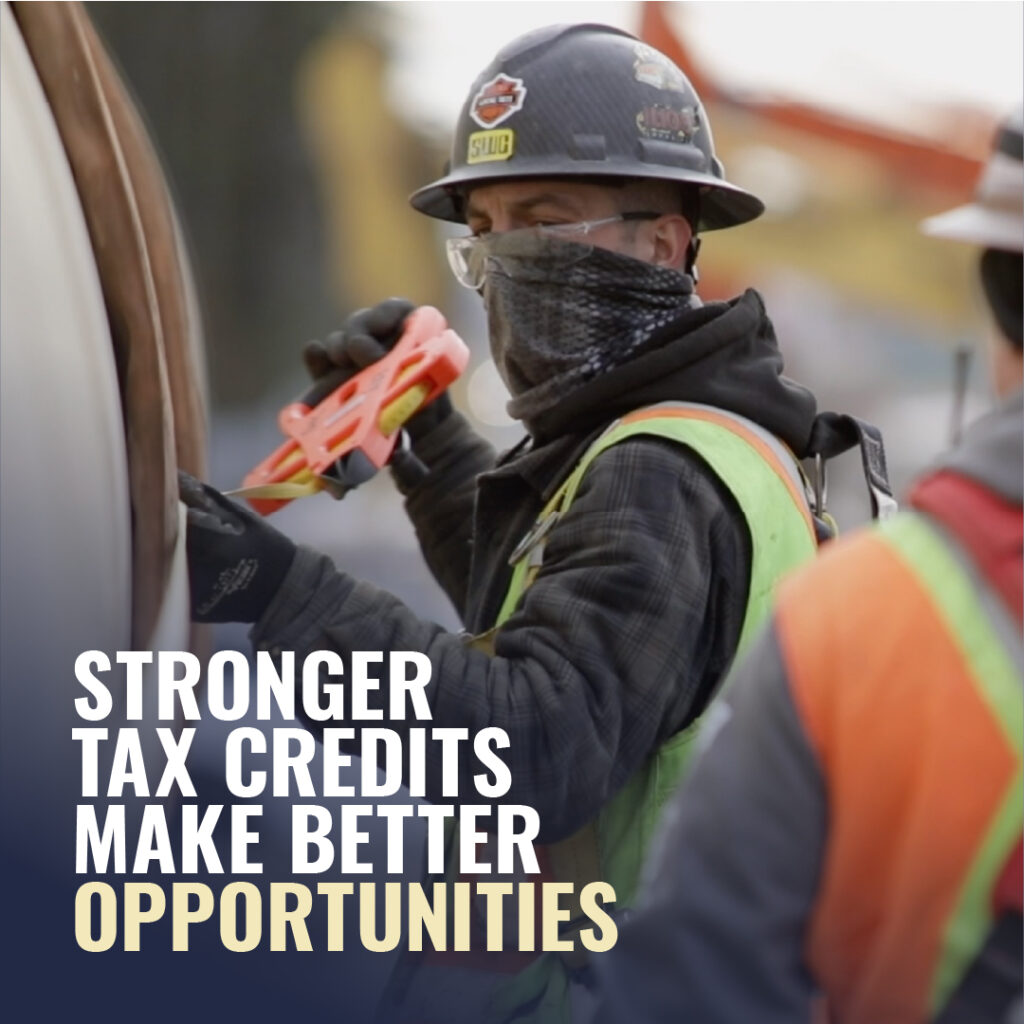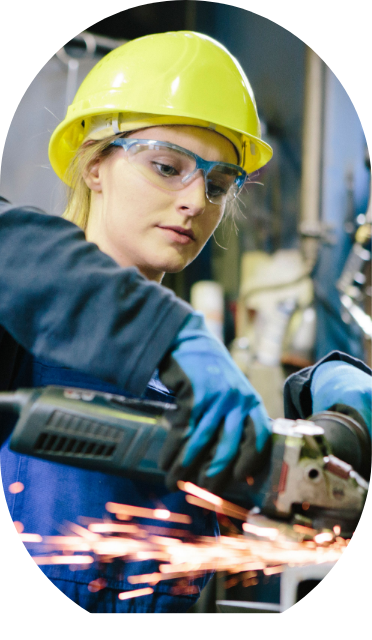Canada’s Building Trades Unions commends the Federal Government for the investment tax credits announced in the 2022 Fall Economic Statement and the 2023 Budget to support the transition to net zero.
However, with the passing of the Inflation Reduction Act in the United States, it has never been more important to pass the investment tax credits for green technologies to create jobs, support workers, and secure Canada’s place as a leader in clean technology.
A Strong Definition for Prevailing Wage
Budget 2023 included one of the strongest definitions for prevailing wage Canada has ever had – a huge win for skilled tradespeople across the country. To receive the Investment Tax Credits, employers will need to provide good labour conditions for workers – including adhering to the new definition of prevailing wage based on union compensation and apprenticeship requirements.
Apprenticeship
As per Budget 2023, at least ten per cent of the tradesperson hours worked on applicable projects must be performed by registered apprentices in the Red Seal trades.
This is an opportunity to introduce a new generation of Canadians to the Building Trades with its strong, middle-class wages and help grow our workforce to meet the demands of tomorrow.
Investment Tax Credits
Clean Technology
Will provide support to Canadian businesses in adopting clean technology such as geothermal energy systems and small modular reactors.
- 30% credit when labour requirements are met; 20% without
Clean Hydrogen
Levels of support will vary between 15 and 40% of eligible project costs, with the projects that produce the cleanest hydrogen receiving the highest levels of support.
- 40% maximum credit when labour requirements are met; 30% maximum without
Clean Electricity
Supports a broad base of clean electricity technologies and proponents to expand the capacity of Canada’s clean electricity grid.
- 15% credit when labour requirements are met; 5% without
Carbon Capture, Utilization, and Storage
CCUS is a suite of technologies that captures carbon dioxide (CO2 ) emissions to either store the CO2 or to use in other industrial processes, such as permanent mineralization in concrete;
- Between after 2021 and before 2031
-
- 60% tax credit for carbon captured directly from ambient air when labour requirements are met, 50% without
- 50% tax credit for carbon captured from means other than directly from ambient air when labour requirements are met, 50% without
- 37.5% tax credit for qualified carbon transportation or storage expenditures when labour requirements are met, 27.5% without
-
- After 2030 and before 2041
-
-
- 30% tax credit for carbon captured directly from ambient air when labour requirements are met, 20% without
- 25% tax credit for carbon captured from means other than directly from ambient air when labour requirements are met, 15% without
- 18.75% tax credit for qualified carbon transportation or storage expenditures when labour requirements are met, 8.75% without
-












